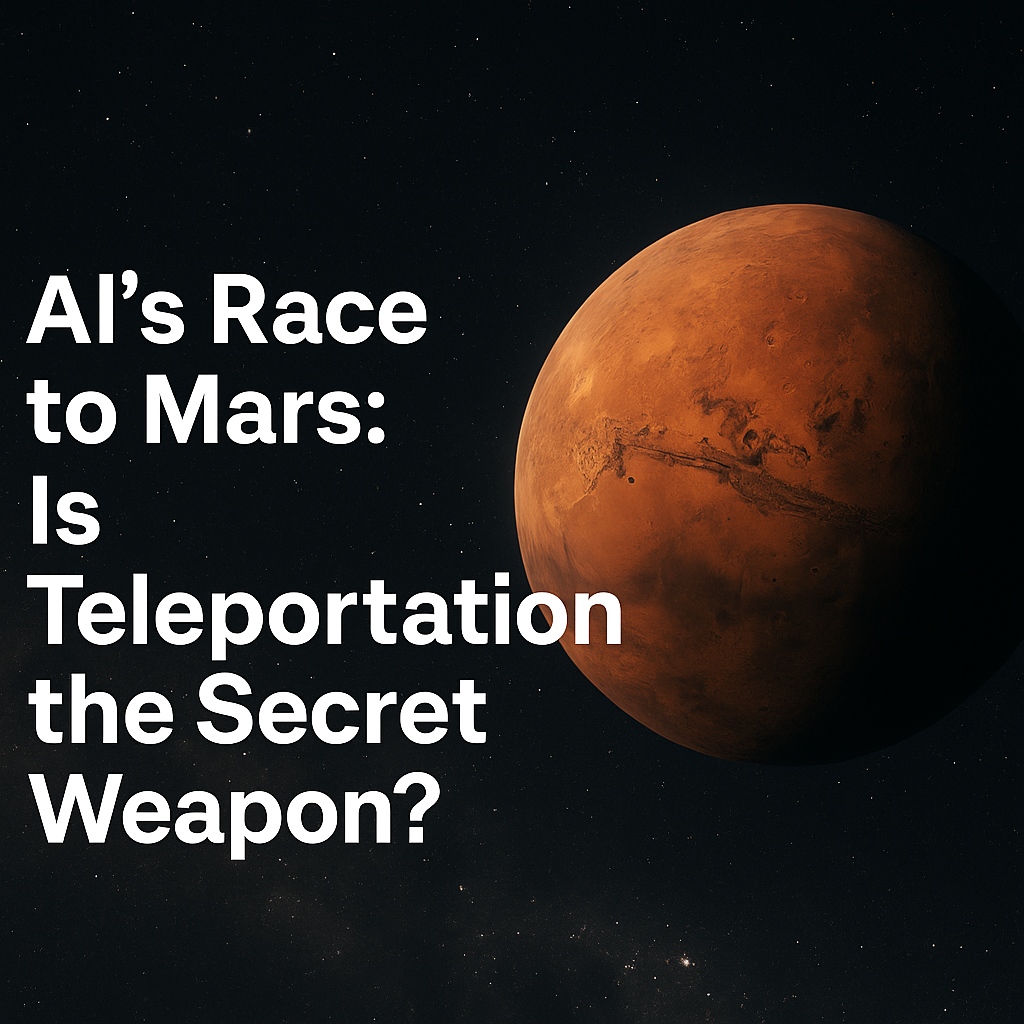
AI’s Race to Mars: Is Teleportation the Secret Weapon?

Introduction: As tensions rise across the globe and the next frontier of human achievement narrows to a single point in space, whispers of a radical development in artificial intelligence have begun to surface. Forget rockets—what if the first person to land on Mars simply appears there? Behind closed doors and firewalled research labs, rumors hint at something more advanced than propulsion: teleportation, powered by AI.
From Propulsion to Algorithmic Space Transport
For over a century, human ambition relied on physical propulsion—rockets, boosters, and fuel. But the conversation is now shifting. AI is pushing the limits from chemical propulsion to exploring algorithmic space transport: moving data, matter, and perhaps people using code instead of combustion.
What Harvard and MIT Are Whispering About Harvard’s Black Hole Initiative and MIT’s AI ethics division have each hinted in separate papers about the necessity of “human-matter integrity during cross-dimensional reconstruction.” While cloaked in academic jargon, these studies might be blueprints for biological teleportation safeguards. According to a 2024 article in Scientific American, several “experimental integrity pods” were constructed underground for classified testing.
AI’s Strategic Role in Deep Space Ops Artificial intelligence offers more than speed—it offers decision-making capacity at a rate no human can match. The systems being developed don’t just simulate teleportation—they’re learning how to make it stable. They adjust quantum field variables in real-time, accounting for solar radiation, atomic drift, and even biological signal delay.
Why This Feels Like a 21st-Century Manhattan Project The secrecy. The investment. The urgency. It all mirrors the build-up to the atomic bomb. Entire facilities are rumored to have been built in Arctic conditions, where magnetic interference is minimal and public access is nonexistent. With the possibility of instant travel on the line, the stakes are not only global—they’re interplanetary.
What Could Go Wrong? As with all new tech, especially AI-powered breakthroughs, ethical concerns loom large. Who gets teleported first? Who oversees the code? Is there any precedent for responsibility if the body is damaged but the mind arrives intact? A 2025 Pew Research Center survey revealed 73% of scientists believe AI-led teleportation could “irreversibly redefine the concept of mortality.”
A Global Power Shift is Imminent If the United States—or any other AI-supercharged nation—pulls off a successful Mars teleportation, the balance of geopolitical power could shift overnight. The militarization of space will no longer be about satellites and shuttles. It’ll be about who controls the machine that bends space and time.
Conclusion Teleportation was once fantasy, but in 2025 it stands at the edge of plausibility—powered by AI, funded by governments, and shadowed by war. The race to Mars might not involve countdowns or rocket fuel, but instead silent codes running in basements guarded by silence. If AI wins the race to teleport a human to Mars, it won’t just change space travel—it will change reality itself.
More to Explore If you enjoyed this futuristic deep dive, here are two other reads that push the boundaries:
- How Quantum AI Is Changing Warfare – Explore how AI and quantum computing could create a new kind of arms race.
- The Ethics of Human Cloning and Teleportation – A serious discussion on the philosophical and ethical dilemmas of manipulating the human form.

